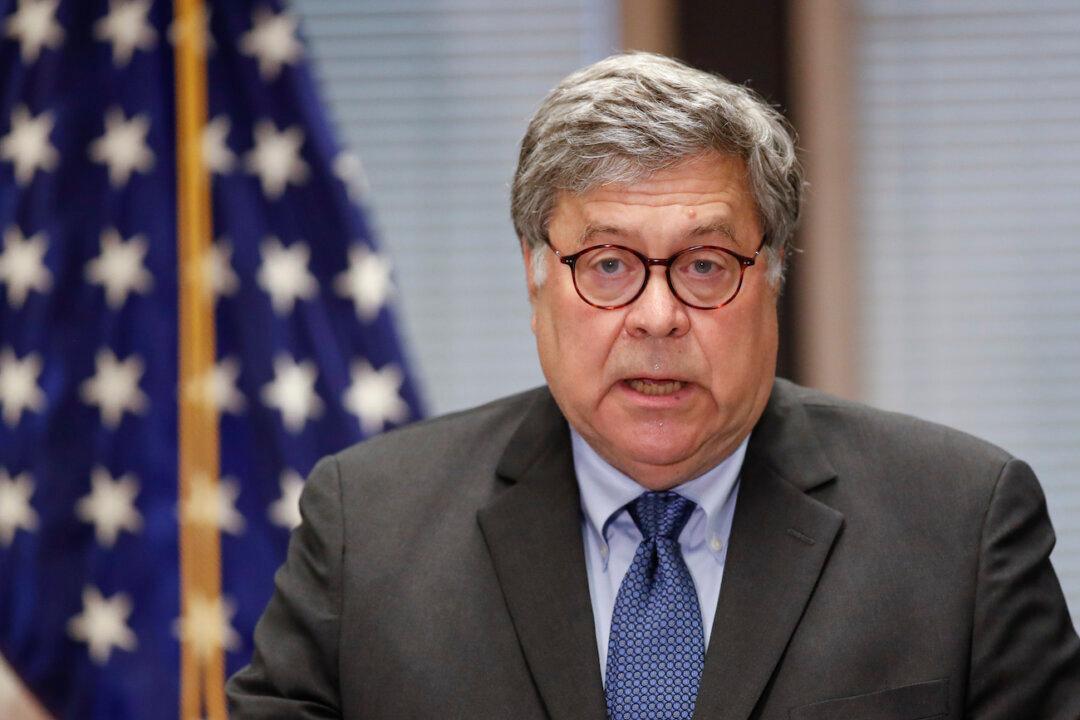Attorney General William Barr on Wednesday encouraged investment in law enforcement as he announced that Operation Legend, a Trump administration initiative to combat violent crime that started in July, has led to more than 5,000 arrests.
“Violent crime is solvable. It’s not something people have to live with at the levels they’re living with it,” Barr said at a roundtable with law enforcement in Albuquerque, New Mexico. “And here in Albuquerque, Albuquerque has a violent crime rate that’s between three and four times the national average. That’s unacceptable in any American city, and it is a solvable problem.”




